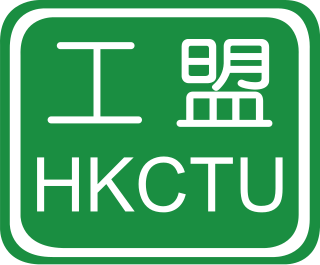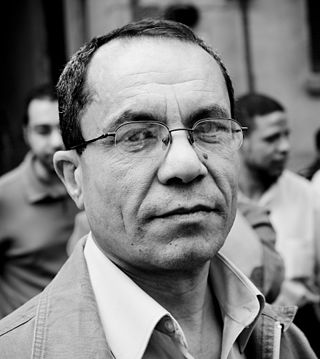Related Research Articles

The Federation of Dutch Trade Unions is a national trade union centre in the Netherlands. The FNV is a significant player in the field of work and income. The trade union consists of a central federation, complemented by several sectoral unions representing specific professional groups and sectors. The FNV aims to safeguard the interests of employees, promote fair labor conditions, and protect workers' rights at the national level.

The Canadian Labour Congress, or CLC is a national trade union centre, the central labour body in Canada to which most Canadian labour unions are affiliated.
Trade unions in India are registered and file annual returns under the Trade Union Act (1926). Statistics on trade unions are collected annually by the Labour Bureau of the Ministry of Labour, Government of India. As per the latest data, released for 2012, there were 16,154 trade unions which had a combined membership of 9.18 million. The trade union movement in India is largely divided along political lines and follows a pre-Independence pattern of overlapping interactions between political parties and unions. The net result of this type of system is debated as it has both advantages and disadvantages. According to the data submitted by various trade unions to the Ministry of Labour and Employment as part of a survey, INTUC with a combined membership of 33.3 million, has emerged as the largest trade union in India as of 2013.

The Hong Kong Confederation of Trade Unions (HKCTU) was a pro-democracy labour and political group in the Hong Kong. It was established on 29 July 1990. It had 160,000 members in 61 affiliates and representation in the Legislative Council of Hong Kong (LegCo) to challenge government policies and push for legal protection of worker and trade union rights. It was one of the two most influential labour groups in Hong Kong, with the other one being the pro-Beijing Hong Kong Federation of Trade Unions.

The Swedish Trade Union Confederation, commonly referred to as LO, is a national trade union centre, an umbrella organisation for fourteen Swedish trade unions that organise mainly "blue-collar" workers. The Confederation, which gathers in total about 1.5 million employees out of Sweden's 10 million people population, was founded in 1898 by blue-collar unions on the initiative of the 1897 Scandinavian Labour Congress and the Swedish Social Democratic Party, which almost exclusively was made up by trade unions. In 2019 union density of Swedish blue-collar workers was 60%, a decline by seventeen percentage points since 2006. A strongly contributing factor was the considerably raised fees to union unemployment funds in January 2007 made by the new centre-right government.

The International Transport Workers' Federation (ITF) is a democratic global union federation of transport workers' trade unions, founded in 1896. In 2017 the ITF had 677 member organizations in 149 countries, representing a combined membership of 19.7 million transport workers in all industrial transport sectors: civil aviation, dockers, inland navigation, seafarers, road transport, railways, fisheries, urban transport and tourism. The ITF represents the interests of transport workers' unions in bodies that take decisions affecting jobs, employment conditions or safety in the transport industry.
Community is a British trade union which formed in 2004. The union represents workers in a diverse range of sectors, including iron and steel, justice and custodial, domestic appliance manufacturing, textiles and footwear, road transport, betting, the third sector, education and early years as well as the self-employed.

The European Confederation of Independent Trade Unions is a regional trade union federation representing around 5 million members of independent trade unions in Europe.

The Italian Labour Union is a national trade union centre in Italy. It was founded in 1950 as a socialist, social democratic, republican, and laic split from the Italian General Confederation of Labour (CGIL). It represents almost 2.2 million workers.
The Nepal Trade Union Congress (NTUC) a national trade union center in Nepal. Founded in 1947, it was the first and largest trade union confederation in country. The NTUC is politically linked with the Nepali Congress (NC).
Trade unions in South Africa has a history dating back to the 1880s. From the beginning unions could be viewed as a reflection of the racial disunity of the country, with the earliest unions being predominantly for white workers. Through the turbulent years of 1948–1991 trade unions played an important part in developing political and economic resistance, and eventually were one of the driving forces in realising the transition to an inclusive democratic government.
Trade unions in Ghana first emerged in the 1920s and have played an important role in the country's economy and politics ever since.
Trade unions in Egypt first emerged at the start of the 20th century, although organised collective action in the form of strikes undertaken by workers was recorded as early as 1882. Following Egypt's formal independence in the mid-1950s trade unions were incorporated into state structures and only one officially recognised national centre existed. Starting in the 1970s and intensifying dramatically during the first decade of the 21st century, an independent, organised labour movement took root in the country. This movement ultimately played a significant role in the Egyptian revolution of 2011 and the subsequent growth of independent trade unions and trade union pluralism. However, with the 2013 Egyptian coup d'état and changes in laws governing trade unions, the situation for labour rights significantly worsened. In March 2018, independent unions were dissolved and required to reregister within 60 days; of 1,000 independent unions in existence previously, only 122 were recognised by the state within the time frame.

The Workers National Democratic Party (WDP) is a workers' political party in Egypt formed shortly after the Egyptian Revolution of 2011. It is backed by the Federation of Egyptian Trade Unions and forms part of the Coalition of Socialist Forces. The party name is sometimes translated in English as Democratic Workers Party, Democratic Labour Party or Labour Democratic Party.

Kamal Abbas is General Coordinator of the Center for Trade Unions and Workers Services (CTUWS), an activist group for independent unions in Egypt. Involved in activism for over 20 years, Abbas has been active in mobilizing worker support during the Egyptian Revolution of 2011 and its aftermath. His approach emphasizes peaceful strikes and rallies accompanied by demands for better wages and working conditions, as well as more regular elections for union officials, and an independent union system.

The Trades Union Congress (TUC) is a national trade union centre, a federation of trade unions that collectively represent most unionised workers in England and Wales. There are 48 affiliated unions with a total of about 5.5 million members. Paul Nowak is the TUC's current General Secretary, serving from January 2023.

The Socialist Party is a Trotskyist political party in England and Wales. Founded in 1997, it had formerly been Militant, an entryist group in the Labour Party from 1964 to 1991, which became Militant Labour from 1991 until 1997.

Kamal Abu Eita is a long-time Egyptian trade unionist and former government minister. As a civil servant at the Real Estate Tax Authority, Abu Eita led a successful struggle for trade union autonomy against the state-controlled Egyptian Trade Union Federation (ETUF) during the Mubarak regime. A prominent figure during the 2011 Egyptian Revolution he helped found the country's first independent union confederation, the Egyptian Federation of Independent Trade Unions (EFITU). Elected to the People's Assembly following the democratic parliamentary election of 2011-12, Abu-Eita served as Minister of Manpower and Immigration between July 2013 and March 2014.
References
- ↑ "Egyptian Democratic Labour Congress is launched". IndustriAll. 2013-05-24. Retrieved 16 March 2016.